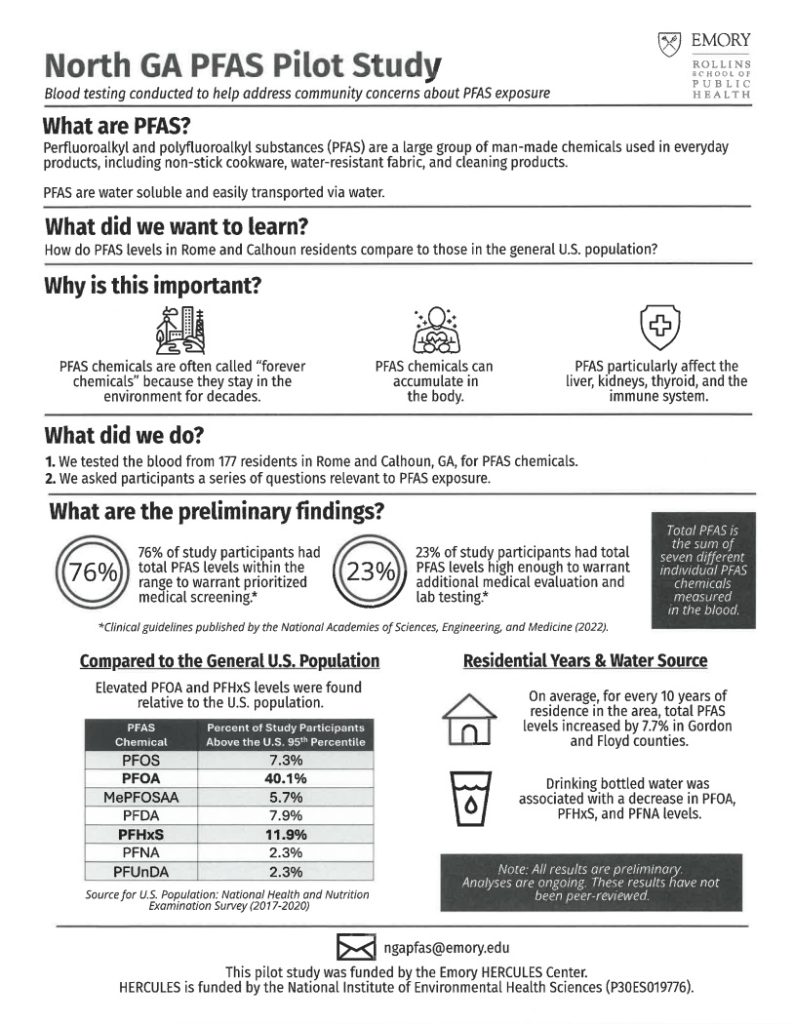Thursday, October 23, 2025–1:50 p.m.
-David Crowder, WRGA News-

Research by Emory has found that 76 percent of study participants in Rome and Calhoun had total PFAS levels within the range to warrant prioritized medical screening, while 23 percent had levels high enough for additional medical evaluation and lab testing.
Dana Barr with Emory’s Rollins School of Public Health shared the results of the study during Thursday’s Rome Rotary Club meeting…..(C-DANA1)……Drinking bottled water and refrigerator-filtered water, as opposed to tap water, was associated with lower PFAS levels.
“In general, the study participants had higher exposures to PFAS than the general U.S. adult population,” she said. “There were some that were quite high. For PFOA and PFHxS, more participants than expected had elevated levels, especially for PFOA, which had about 41 percent. For each additional ten years of living in Gordon and Floyd Counties, total PFAS levels increased by about 7 percent overall, but by about 11 percent if you are just looking at Floyd County.”
The pilot program, funded through Emory’s Human Exposome Research Center, called HERCULES, studied 177 participants, with an average age of 57.
Many of whom are long-term residents of Rome and Calhoun.
According to Barr, the study was not designed to investigate PFAS-related health impacts, nor does it tell us when and how exposures occur.
“We like to follow up and do some studies that can provide that information,” she said. “The first thing we wanted to do is see the level of exposure for the whole community, and if it was something to be concerned about or not.”
There are plans to come back and do additional studies if grant funding can be obtained.
PFAS, also known as forever chemicals, don’t break down readily in the environment or the human body. The chemicals have been linked to a number of health-related effects, including some types of cancers. They have been commonly used to make carpet stain-resistant. However, the chemicals are also found in certain types of non-stick cookware, like Teflon, as well as grease-resistant food packaging also contains the chemicals.
Textile manufacturers, alongside the City of Dalton and chemical companies, settled a lawsuit with the City of Rome for $184 million. The funds from that suit are primarily designated to construct the new water filtration plant.


